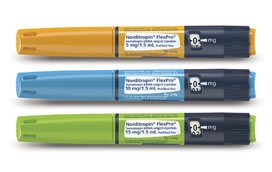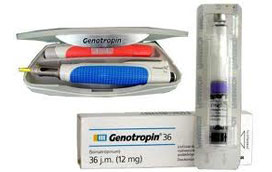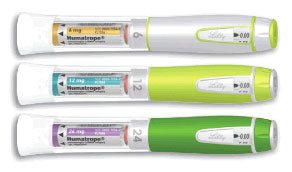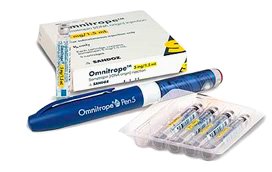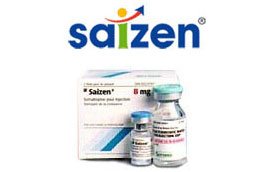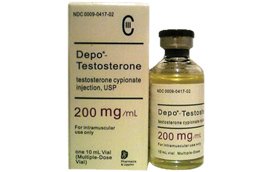Human Growth Hormone and Weight Loss: Does It Work?

Middle-aged weight gain – it plagues women and men as they get older. It can be frustrating to gain weight for no apparent reason – although if you ask a hormone replacement therapy (HRT) specialist why you are getting fatter, you will likely hear about any of a number of different hormones that could be the cause. In this report, we will explain the connection between gaining weight, human growth hormone, and weight loss.
HGH, as it is also called, is one of the most powerful hormones in the body. It not only impacts how our bodies regenerate crucial cells for growth and maintenance of our muscles, and bones, but it protects internal organs from shrinkage and keeps our nails, skin, and hair looking young and vibrant. Human growth hormone also impacts immunity, brain functions, libido, and metabolism – the very function you need to keep your weight in check. That is why we often hear happy HGH weight loss testimonials from men and women who came to us for other reasons and discovered a trimmer figure as an added bonus.
HGH is not a diet – do not expect to lose 30 pounds in 30 days. You will not be given any weight loss foods or exercises to do, and you can still eat whatever you want. Of course, if you are using your HGH treatment as an opportunity to make positive changes in your life, this is a good time to look at your dietary habits and get physically active in some way. Combining HGH and fat loss results with exercise and proper nutrition will improve your overall results.
Also, do not expect us to give you an HGH weight loss timeline – there is no such thing. You probably will not notice any changes until your second or third month of treatment. Although your metabolism will start to improve during the first few weeks of human growth hormone therapy, it takes a while for fat loss and muscle mass increase to occur. Speaking of muscles, while you may notice a decline in belly fat, the scale may not always register this decrease as your lean muscle will be increasing at the same time.
Why You Gain Weight When Growth Hormone Levels Decline
Weight gain and growth hormone decline have an unwanted effect on one another. When you gain weight, your body tends to reduce the amount of growth hormone produced. On the flip side, when growth hormone levels drop, the metabolism slows down, and you gain weight. This is a particularly unpleasant prospect for women. When it comes to HGH weight loss, females often benefit tremendously as their bodies are used to fluctuating hormone levels, so increasing HGH can help reboot their metabolism.
Obese patients are more likely to receive a diagnosis of HGH deficiency than their thinner counterparts. Diabetes risk is also greater in women and men with low human growth hormone levels.
Another aspect of human growth hormone and weight loss is due to the lipolytic effect from HGH. The body that receives supplemental HGH will begin to metabolize previously stored fat at a higher rate, with or without exercise – but as you can imagine, increasing physical exertion will help to speed up and improve the process of fat burning.
The overall HGH fat loss experience for most adults is between 10 and 14 percent of body fat over a six-month course of human growth hormone therapy.
People with low levels of HGH and fat loss issues that result in weight gain often have higher levels of lipoprotein lipase, an enzyme that helps to build up the body’s fat stores. These fat cells accumulate free fatty acids, and the fat cells expand, causing weight gain. HGH helps to reduce lipoprotein lipase and free fatty acids which can then be used to increase energy.
How Human Growth Hormone Increases Weight Loss
Since your doctor will not prescribe HGH for weight loss, how does it work to initiate this fat-burning state?
The hormone specialist will prescribe human growth hormone to combat the many symptoms and effects of HGH deficiency. Weight gain is just one aspect of this condition. The benefits that come from human growth hormone and weight loss also help to reduce the risks of diabetes, osteoporosis, and heart disease.
As a result of fewer free fatty acids in bloodstream circulation, HGH weight loss before, after, and during treatment is often surprising to many people. With the added energy that comes from burning stored fat, many individuals put that to work increasing their exercise duration and intensity.
To receive more information about using HGH shots for weight loss, cost and treatment options, and how to get a diagnosis of human growth hormone deficiency, please contact Kingsberg HRT Clinic for a free, no obligation, confidential consultation today.













